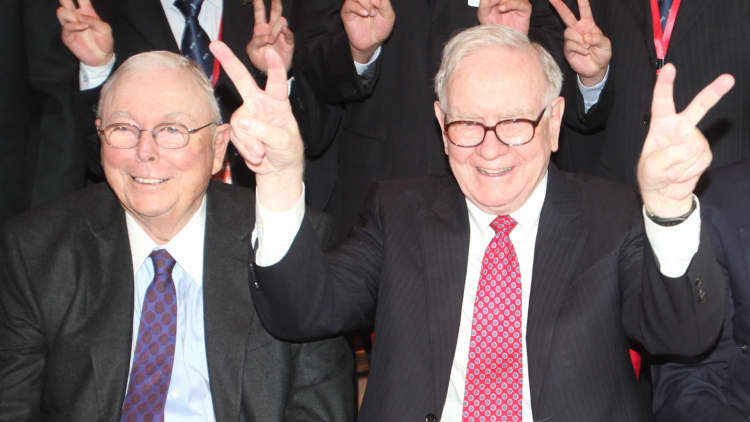"You've got to find what you love. And that is as true for your work as it is for your lovers. Your work is going to fill a large part of your life, and the only way to be truly satisfied is to do what you believe is great work," Steve Jobs, the iconic co-founder of Apple, in his commencement address to Stanford in 2005.
"And the only way to do great work is to love what you do," he continued. "If you haven't found it yet, keep looking. Don't settle. As with all matters of the heart, you'll know when you find it. And, like any great relationship, it just gets better and better as the years roll on. So keep looking until you find it. Don't settle."
It's compelling advice from an absolutely legendary entrepreneur and businessman.
But what Jobs means, essentially, is that if you want to be successful, you must follow your passion — and he's not the only one who's given this advice.
The phrase "follow your passion" is a hashtag on Instagram, and last year in October, The New York Times even published an article explaining why following your passion is "good for you."
Popular though the notion may be, the advice has also been rebuked by some incredibly successful people, including billionaire tech entrepreneur Mark Cuban, multi-millionaire and New York University professor Scott Galloway and former star of Discovery Channel's "Dirty Jobs" Mike Rowe.
Mark Cuban: "One of the great lies of life is 'follow your passions'"
"One of the great lies of life is 'follow your passions,'" Cuban said in an episode Amazon Insights for Entrepreneurs. "Everybody tells you, 'Follow your passion, follow your passion.'"
Unfortunately, he argues, you may not be talented at what you are passionate about.
"I used to be passionate to be a baseball player. Then I realized I had a 70-mile-per-hour fastball," said Cuban. Competitive major league pitchers throw fastballs in the range of 90-plus miles per hour. He also was "passionate" about being a professional basketball player, but he can only jump seven inches, whereas top NBA players can jump more than 40.
Not becoming a professional athlete has served Cuban well. The "Shark Tank" star and NBA's Dallas Mavericks owner is currently worth $4.1 billion, according to Forbes — all thanks to his tech prowess.
"There are a lot of things I am passionate about. A lot," he said.
But in order to be successful, Cuban argues that you should focus on where you devote your time.
"The things I ended up being really good at were the things I found myself putting effort into. A lot of people talk about passion, but that's really not what you need to focus on," he said. "You really need to evaluate and say, 'Okay, where am I putting in my time?'"
Scott Galloway: "People often come to NYU and say, 'Follow your passion' — which is total bulls---"
The New York University marketing professor and serial entrepreneur, who sold his company L2, Inc., reportedly for over $130 million, says that the jobs that are especially inspiring or rewarding often don't make a lot of money.
"[Return on investment] and sex appeal are inversely correlated. What do we mean about that? Simply put: Don't follow your passion," Galloway tells CNBC Make It.

Instead, identify your talent and zero in there. "Find out what you're good at and then invest 10,000 hours in it — and become great at it," Galloway says.
"People often come to NYU and say, 'Follow your passion' — which is total bulls---, especially because the individual telling you to follow your passion usually became magnificently wealthy selling software as a service for the scheduling of health care maintenance workers. And I refuse to believe that that was his or her passion," he says.
Mike Rowe: 'Follow opportunity'
"We need to stop telling young people that the only way to be happy is to correctly identify your passion when you're 18, 19 and 20-years-old," Rowe told CNBC Make It in 2018. "We basically force them to figure out what is going to make them happy and then they get this idea in their head of 'I'm going to be a musician. Or, I'm going to be an executive or an accountant.'"
Following your passion can be confusing and lead young people to rack up serious amounts of debt in order to prepare for an job, of which there are few actual positions available, Rowe says.
#Firefighters don't make excuses. They answer the call. #workethic #noexcuses
"On 'Dirty Jobs,' I met countless people who were doing things that visually didn't look like anything you wanted to be doing," he says. These jobs "looked like the thing you would go out of your way to avoid. But then, when you sit down and talk to them, you find out that they make six figures a year, and they have a vacation, and they have enough balance in their life to coach their kid's little league team and they don't have any debt."
Rowe says that chasing your passion can make people blind to very real job options. "Take your passion with you," he advises, "but don't follow it around. Instead, follow opportunity."
Don't miss:

Like this story? Like CNBC Make It on Facebook!


